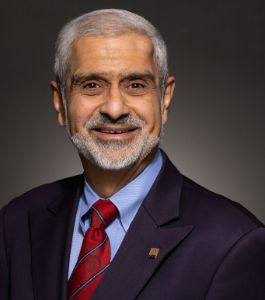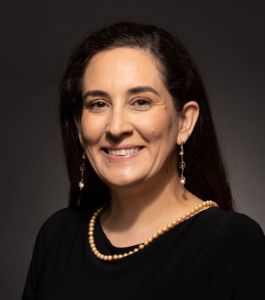Combined Master of Public Accounting/ Master of Business Administration
For more information, please see the Academic Catalog.
The University of West Georgia now offers a path for students to earn their MPAcc and MBA degrees concurrently. This option develops the proficiencies students need to succeed in today’s competitive job market.
The MPAcc program includes accounting and finance courses that advance students’ technical knowledge and foster their critical thinking and creative problem-solving abilities. Students also learn data analytic techniques, vital for communicating effectively in today’s fast-paced business environment. The MBA program broadens students’ competencies by teaching advanced management skills such as marketing professional services, supervising employees, and working in international business settings.
Graduates qualify to take the Certified Public Accountant (CPA) examination in the state of Georgia and earn sufficient graduate-level accounting hours to teach as a full-time lecturer or part-time adjunct faculty at the University level.
Program Location
Carrollton Campus
Method of Delivery
Face to Face
Accreditation
The University of West Georgia is accredited by The Southern Association of Colleges and Schools Commission on Colleges (SACSCOC).
Credit and transfer
Total semester hours required: 45
Maximum Hours Transferable into program: 6
A transfer credit evaluation will be completed by the UWG Transfer Team (transfer@westga.edu). Course application to a program is subject to review by the department.
Graduate students may be able to reduce their cost through prior learning, previous degrees earned at UWG, or transfer credits. We have created a tool to help students estimate their tuition costs.
This program may be earned entirely face-to-face. However, depending on the courses chosen, a student may choose to take some partially or fully online courses.
Save money
UWG is often ranked as one of the most affordable accredited universities of its kind, regardless of the method of delivery chosen.
Details
- Total tuition costs and fees may vary, depending on the instructional method of the courses in which the student chooses to enroll.
- The more courses a student takes in a single term, the more they will typically save in fees and total cost.
- Face-to-face or partially online courses are charged at the general tuition rate and all mandatory campus fees, based on the student's residency (non-residents are charged at a higher rate).
- Fully or entirely online course tuition rates and fees my vary depending on the program. Students enrolled in exclusively online courses do not pay non-Resident rates.
- Together this means that GA residents pay about the same if they take all face-to-face or partially online courses as they do if they take only fully online courses exclusively; while non-residents save money by taking fully online courses.
- One word of caution: If a student takes a combination of face-to-face and online courses in a single term, he/she will pay both all mandatory campus fees and the higher eTuition rate.
- For cost information, as well as payment deadlines, see the Student Accounts and Billing Services website
There are a variety of financial assistance options for students, including scholarships and work study programs. Visit the Office of Financial Aid's website for more information.
Coursework
The combined MPAcc/MBA degrees require successful completion of 45 graduate course hours. Students without an undergraduate accounting degree must complete 15 additional upper division undergraduate accounting hours. Students without an undergraduate business degree must also fulfill a five business course core requirement, which may be taken in a face-to-face classroom setting or as self-study modules.
General
This course is an integrative approach to the study of strategic business communication found in corporations, organizations, and small businesses today. There is a strong focus on developing credibility and the art of persuasion which allows students to approach the development of effective business messages from a strategic and reflective standpoint. Students analyze case studies that allow for critical thinking and problem solving in business communication including team building, conflict resolution, public relations, marketing, management, and leadership. The development of business plans through team building and exhibiting leadership skills frame the content of this course providing an active and enriched learning experience.
In-depth analysis of and research on current topics in accounting; theoretical analysis of recent accounting pronouncements and the study of current literature in accounting. Ethical issues in financial reporting are emphasized.
Designed for the student with past exposure to cost accounting concepts/applications. The course emphasizes research of the current topics affecting the information providing function of the managerial accounting process. Ethical issues are emphasized.
A study of the identification and modeling of buisness processes and analysis and design of accounting information systems for business processes.
An examination of the federal tax treatment of fiduciaries, gifts, estates, corporations and partnerships. Emphasis is placed upon the formation of the entity, elements of gross income, treatment of property dispositions, allowable deductions and credits, determination of entity and investor basis, and liquidation of the entity. Tax research is emphasized.
Advanced problems and research in the application of auditing standards; internal control evaluations; applications of statistics; audits of EDP systems; auditors' ethical, legal and reporting obligations.
Principles and practices of fund accounting are examined with emphasis upon their adaptation to nonprofit institutions. The course includes measuring efficiency and economic use of resources to satisfy legal reporting as well as societal requirements. Auditing the reports and operations of nonprofit organizations is emphasized.
In-depth supervised individual study of one or more current problems of the accounting profession.
Focuses on information technology and systems from a general management perspective. Discusses management of the systems development process, the organizational cycle of information, technology, planning, evaluation, selection, and strategic uses of information technology. Includes frequent discussions of industry case studies.
This course provides a survey of forecasting methods used by managers and forecasting practitioners. Topics include time-trend, regression-based, time-series decomposition, and auto-regressive moving average methods.
This course builds skills in microeconomic analysis for managers and provides a conceptual foundation for further functional area studies. Topics include consumer and producer theory, industrial organization, and aspects of game theory and statistical analysis. Prerequisites: ECON 2105 or 2106, ECON 3402
Topics may include foreign exchange market; exchange rates; balance of payments analysis and adjustment process; financing institutions, monetary relations, and monetary reform; gold, the dollar, devaluation, and SDRs. Same as FINC 6521.
A study of the major financial tools and techniques through problem solving and case studies.
Study of securities markets and security analysis for portfolio planning.
A managerial examination of the behavioral and structural factors affecting performance of organizations including study of fundamentals, individual and group concerns, organizational processes with emphasis on current issues.
A study of total enterprise at the executive level applying a set of decisions and actions which result in the formulation and implementation of plans strategies that achieve the mission and goals of the enterprise with special consideration of the effects of globalization, ethics, and corporate accountability. This course must be taken in the final semester of study or with permission of the department chair.
Sales management is a course designed to teach prospective managers the skills of salesperson management. Topics include motivating, controlling and evaluating salespersons for results. Trends and recent developments in sales management will also be covered.
A high level managerial decision making course that emphasizes analysis, planning, implementation, and control of marketing programs in a competitive environment. The case method and/or computer simulations is the integrative elements on the course.
The international business strategy course will cover each traditional functional area of an organization as it applies to doing business across country boundaries. The functional areas addressed will include Finance, Accounting, Production, Human Resources Management, Marketing, and Technology Management. Students will learn to analyze international business situations and risks, and to develop successful international strategies based on such analysis.

Erich Bergiel, Ph.D.
Professor
Bruce Bird, J.D.
Professor of Accounting
Yun Cheng, Ph.D.
Associate Professor of Accounting
Ron Colley, Ph.D.
Professor of Accounting
Joan Deng, Ph.D.
Professor
Kimberly Green, Ph.D.
Professor
Susan Hall Webb, Ph.D.
Professor of Business Communication
Sunil Hazari, MBA, Ed.D
Professor of Marketing
Charles Hodges, Ph.D.
Professor of Finance
Linxiao Liu, Ph.D.
Associate Professor of Accounting
Minna Rollins, D.Sc.
Director of Graduate Programs, Professor of Marketing
Beheruz N. Sethna, Ph.D.
Regents' Professor of Marketing
William Smith, Ph.D.
Chair, David A. Johnson Professor in Predictive Analytics
John Upson, Ph.D.
Associate Dean, Professor of Management
Susana Velez-Castrillon, Ph.D.
Associate Professor
Jack Wei, Ph.D.
Professor of Marketing
Michael Yu, Ph.D.
Professor of AccountingGuidelines for Admittance
- All graduate applicants must complete the online Graduate Application. A current application fee of $55 is required.
- Applicants should also review the Graduate Studies Website for individual program specific requirements and tasks that must be completed prior to admission. See Graduate Studies Application Process.
- International applicants are subject to additional requirements and application deadlines. See Procedures for International Students.
- Official transcripts from a regionally or nationally accredited institution are required and should be sent directly to the UWG Graduate Admissions Office.
Program Specific Admittance Guidelines
Applicants must be admitted into both the MPAcc and MBA programs. An Online Graduate Application must be submitted separately for each program. Each application requires a $40 application fee.
Applicants should review the “Admissions” tab on the following web pages for program specific requirements and tasks that must be completed prior to admission:
MPAcc program
MBA program
All materials should be sent to the Graduate Admissions Office: graduate@westga.edu or
UWG Graduate Admissions
Mandeville Hall
1601 Maple Street
Carrollton, GA 30118
Application Deadlines
Specific Graduate Admissions Deadlines are available via the Graduate School
See The Scoop for more specific deadlines.
Admission Process Checklist
The Graduate Studies Application Process checklist is available here
Contact
Graduate Admissions
graduate@westga.edu
678-839-1394
Richards College Office of Graduate Student Services
Dr. Hope Udombon
Administrative Director of WebMBA Program & Graduate Student Advisor
Email: hudombon@westga.edu
Phone: 678-839-5355
Specific Graduate Admissions Deadlines are available via the Graduate School
See The Scoop for more specific deadlines.
MPAcc Learning Goals
LG1 Communicate at a professional level in oral presentations and in writing.LG2 Identify how globalization affects organizations and their environment.
LG3 Recognize the importance of ethical decision making.
LG4 Understand the major forms of accounting and be able to apply these principles and practices in a professionally responsible manner to accounting and business processes and systems.
MBA Learning Goals
LG1 Communicate at a professional level in oral presentations and in writing.LG2 Work effectively with others and lead in organizational situations.
LG3 Identify how globalization affects organizations and their environment.
LG4 Recognize the importance of ethical decision making.
LG5 Integrate analytical and problem solving skills with concepts and theories from all functional areas of business.
